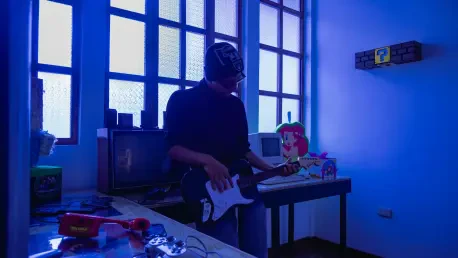The music industry stands at a formidable crossroads today, as advancements in artificial intelligence (AI) usher in groundbreaking possibilities alongside significant challenges. Among the most provoking innovations is Timbaland’s AI-generated artist, TaTa, which has sparked fervent debate in creative circles. Timbaland, a celebrated music producer, has introduced a new genre he calls A-pop, short for artificial pop, via his company, Stage Zero. While some hail this as a technological leap forward, others are wary of the potential repercussions on human musicianship and artistry. Despite the backlash, AI is celebrated by proponents as an invaluable creative tool, not a replacement for human talent. Nevertheless, the contrasting opinions highlight an industry grappling with the future of music creation and the authenticity it holds dear.
Creative Innovation or Artistic Mimicry?
The AI-driven shift led by TaTa’s introduction marks a transformative phase where digital characters begin to populate the music landscape. Industry executive Ray Daniels asserts that AI personas share similarities with legendary animated figures such as Mickey Mouse and Bugs Bunny, which have historically promoted products and even entered the music scene. However, a point of contention arises over the fact that while those animated characters sprang from human imagination and artistry, TaTa emerges from an algorithmic genesis. This raises concerns among traditionalists who fear for the future of human-centric creativity. Yet, Timbaland has clarified his support for live talent, stating that AI is merely an enhancement to the palette of tools available to artists. He stresses that it provides new pathways in creative expression without overshadowing human contributions, serving instead as a companion in the evolving narrative of music production.
The Paradigm Shift in Music Production
The integration of AI into music heralds not just new opportunities but also a significant paradigm shift in the industry’s creative processes. The impact of AI on the music landscape is seen in the collaborative dynamics between human artists and AI-generated counterparts, expanding the potential for reimagined musical compositions. AI tools are increasingly employed to augment songwriting, produce novel soundscapes, and assist in the remixing of tracks, challenging existing conventions and inviting artists to experiment beyond their traditional boundaries. Despite the mixed reaction, the widespread application of AI holds the promise of redefining the manner in which talent is discovered and nurtured, potentially broadening avenues for aspiring musicians. Thereby, the music industry, shaped by both acceptance and resistance, ventures into an era where AI is inextricably linked to artistic innovation, continuously stirring debate over the balance of man and machine in the creative domain.









